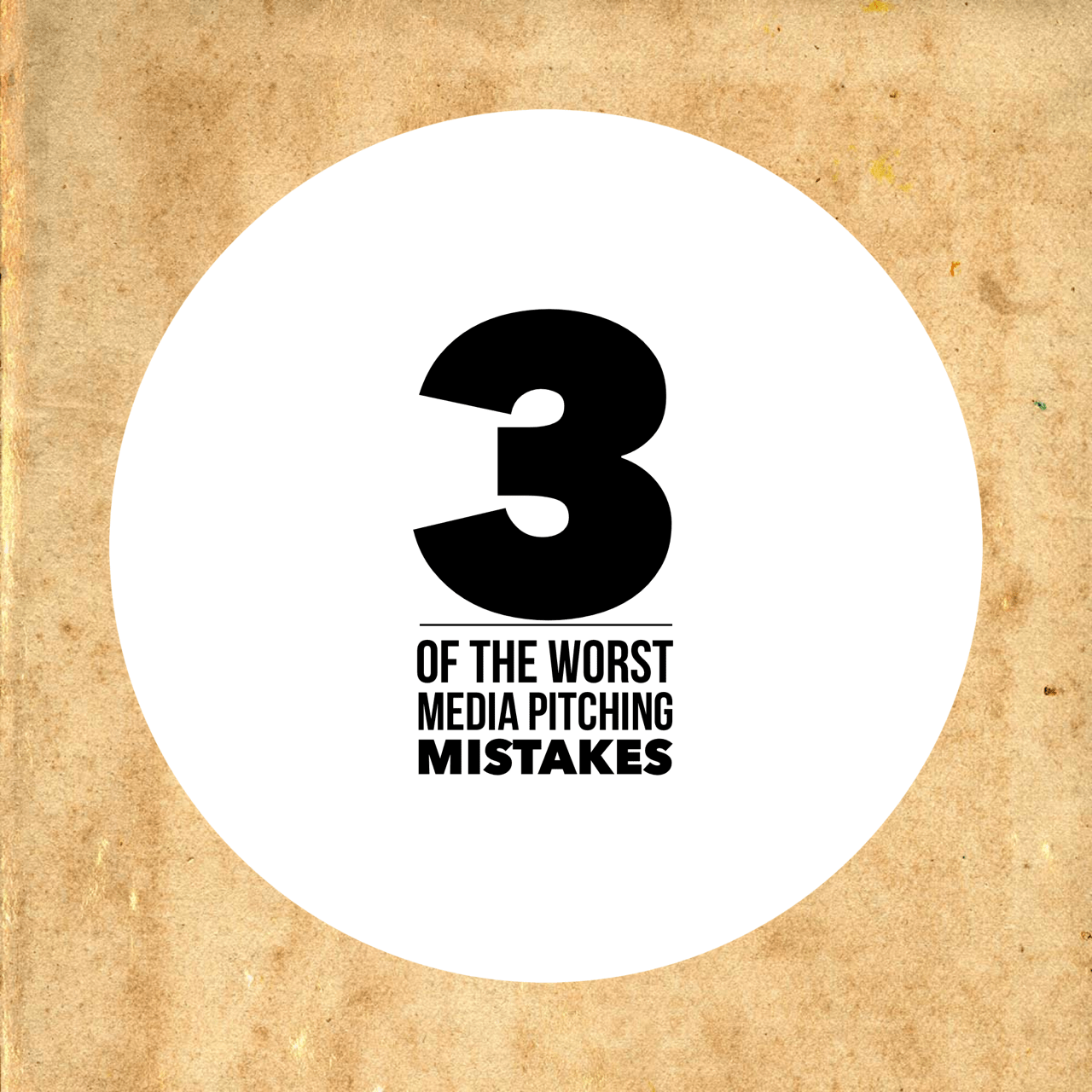Are you a media darling or someone journalists cross the road to dodge? Here are the three biggest mistakes businesses make with their media relations—and how to avoid them by doing the right thing.
Dear journalist/blogger,
I have an awesome business/product! Could you please profile me and my brand in your media outlet/on your blog? What editorial opportunities are there for me?
Also, we have this event coming up (see flyer attached). Would love it if you could share this and promote it for me. Here is my website all about my business. If you can share this with your readers that would help me out.
Thanks,
Person who is not likely to receive media coverage
***
Emails like this are sent on a regular basis to media and bloggers and they hit the trifecta of mistakes naïve businesses make when undertaking their own media relations activities (and unfortunately by some PR agencies).
Here are three reasons why that terrible email will never win you any media love:
- It assumes it’s the media’s job to find you interesting
It is a blogger’s/journalist’s job to create content that is of interest to their audience, not to provide publicity for your business. When you undertake media relations activities, it is your job to give them newsworthy content that would be of interest to their audience. See the difference?
Don’t expect the media to find the interesting angle and opportunity for media coverage in your business for you. If you give them a strong angle that is relevant to the audience, and fits with the style and content of that media outlet, then it is more likely to be picked up by the outlet or blog.
You should know what editorial opportunities exist for your business because you should be aware of what is usually covered on the blog or media outlet. You should be able to put together a pitch that shows this, and is specific to the particular blog or media outlet you are contacting.
“Would you find what you’re pitching to a journalist interesting as a reader/listener/viewer yourself?”
- Wasting the media’s time
Emails like this waste journalists’ time. First of all because it is clear that the sender obviously hasn’t tailored his/her approach to even explain why the business is a good fit for the media outlet or blog. If you haven’t given your media relations any thought, why should journalists and bloggers give you any attention? This kind of email asks them to read about your business when you clearly haven’t bothered to check out theirs first.
Secondly, there is no purpose to the email. Senders who think this kind of message is ‘media relations’ always happen to be peddling something that is irrelevant, boring, or not newsworthy. They are oblivious to the fact it doesn’t benefit anyone (including themselves, because the journalist/blogger is now annoyed).
It is easier to hit ‘delete’ than to reply, and perhaps the sender will be blocked from sending further emails too. Give your media outreach a chance and don’t give yourself a bad reputation. Only contact a journalist or blogger if you strongly believe that they would be interested in what you have to offer.
“Don’t expect the media to find an interesting angle and media opportunity for you.”
- Treating the media like they owe you media coverage
This email is also all take and no give. Why should a journalist do you, or the hundreds of others who send similar emails, a favour? You are more likely to get what you want if you give them what they want—most things in life work this way.
PR professionals should know what bloggers and journalists want, starting with a relevant story and a good angle on that story, and also know what format they want it in. Sadly not all of them do. Small business owners doing their own PR shouldn’t contact journalists and bloggers unless they know how to give them what they want.
Editorial is not a right. Treating it as anything other than a privilege, one where a journalist or blogger knows what’s best for their audience demonstrates either ignorance or rudeness. Sadly even many PR agencies miss this point.
Do the right thing
I asked publisher and editor Jen Bishop for her take on bad PR emails. A journalist of 15 years turned full-time blogger, having founded the hugely successful Interiors Addict and Reno Addict sites, Jen receives a lot of these types of emails.

“Free publicity is definitely possible in terms of securing editorial with an online publication, but you need to sell yourself to me (being in the position to do you a favour and promote your business to thousands) as newsworthy and interesting, not ask for a freebie! Think about ways you can provide me with great content for my readers and we’ll have ourselves a win-win situation; my favourite kind!”
She suggests:
- Offering to write expert tips “on a topic I can’t write about with authority myself”.
- Providing exclusive photos of an exciting and unique product.
- Contributing a high-value prize for a giveaway.
The one key thing Jen says you should ask yourself before you send your email is:
“Would you find what you’re pitching interesting as a reader yourself?”


